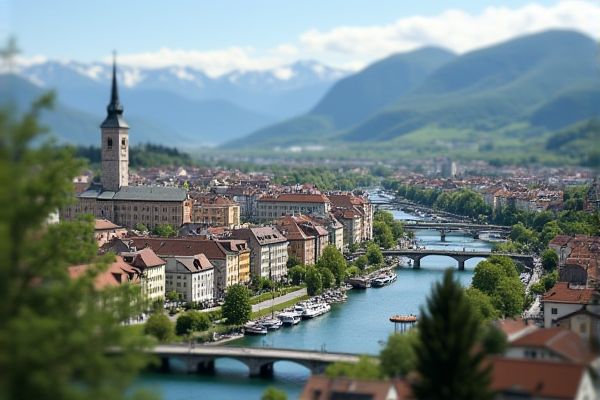
Moving to Austria checklist: Visa and residency permits requirements. Cost of living in Austria. Healthcare system and insurance. Language: German basics needed. Housing and rental market insights. Public transportation options. Job market and employment laws. Cultural etiquette and customs. Local education and schooling options. Banking and taxes system.
Visa and residency permits requirements.
To move to Austria, one must obtain a residence permit, achievable through various paths such as the Red-White-Red Card for qualified workers, financial independence, employment, studies, or family reunification. Required documents include a valid passport, proof of health insurance, German language proficiency, a clean criminal record, and specific financial and accommodation proofs. The application process varies based on the type of permit and quotas, making it important to carefully consider the necessary steps for a successful immigration journey.
Cost of living in Austria.
The average monthly cost of living in Austria is approximately EUR1,604 for a single person, with expenses for students ranging between EUR700 and EUR1,000. For a family of four, the cost can reach around EUR3,899. There are significant variations in rent and other expenses, depending on one's location and lifestyle. To explore more about these costs, you can visit the Cost of Living in Austria blog post by Instarem, which provides detailed insights and useful information for anyone planning to live in Austria. Make sure to consider these variations while planning your budget.
Healthcare system and insurance.
In Austria, health insurance is mandatory, with employed expats automatically enrolled in the public healthcare system through their employer, while self-employed individuals and freelancers can choose between public or private insurance. The public health insurance covers essential care, but private insurance can provide additional benefits and more personalized care.
Language: German basics needed.
Learning German is highly recommended when moving to Austria, as it helps in connecting with locals, navigating daily life, and dealing with bureaucracy. Even basic phrases like greetings and polite expressions can significantly enhance your experience and integration into Austrian culture. For more detailed tips and essential vocabulary, the blog on Recom Relocation offers valuable insights for newcomers to Austria.
Housing and rental market insights.
When moving to Austria, be aware that the housing market is currently slowing, with residential property prices falling by 2.35% in Q4 2023, and average gross rental yields standing at around 3.57%. Rent prices are increasing, with an 8.2% year-on-year rise to EUR 473.40 per month, and the rental market is heavily influenced by non-profit housing associations which help stabilize rents and reduce private housing costs.
Public transportation options.
In Austria, particularly Vienna, the public transportation system is extensive and reliable, including buses, trams, underground lines, and trains operated by Wiener Linien. It offers various ticket options such as single tickets, 24/48/72-hour passes, and monthly/annual passes. This transportation network is part of the larger Verkehrsverbund Ost-Region VOR Network, ensuring a comprehensive and convenient travel experience for residents and visitors alike.
Job market and employment laws.
When moving to Austria, it is crucial to understand the job market and employment laws. The Austrian job market is characterized by growth in sectors like technology, healthcare, and renewable energy, with a high demand for skilled workers. Foreign nationals need a work and residence permit, and employment is governed by contracts that outline tasks, rights, and obligations. The Austrian Public Employment Service (AMS) supports job seekers, and employers must comply with regulations such as reporting employment and maintaining necessary documentation.
Cultural etiquette and customs.
When moving to Austria, it is crucial to understand and respect local customs, such as using formal greetings, adhering to strict table manners, and maintaining punctuality in both social and business settings. Additionally, dressing conservatively, avoiding discussions of business during meals unless initiated by the host, and respecting traditional etiquette like saying 'Guten Appetit' before eating are essential. For further insights, it might be helpful to explore Cultural Dos and Don'ts for Expats Living in Austria, which offers valuable information on navigating these cultural nuances thoughtfully.
Local education and schooling options.
In Austria, expatriate families face the decision between enrolling their children in free state schools or opting for the more costly private international schools. International schools provide a holistic education, global qualifications, and a multicultural environment, while state schools, although free, often require proficiency in German. The admission criteria for International Schools in Austria vary, prioritizing children of international officials, those with parents in the international business sector, and children requiring an English-language education. Additional considerations often include sibling attendance and application dates, making the choice between these educational institutions a pivotal decision for expat families.
Banking and taxes system.
When moving to Austria, it is crucial to get your finances in order by opening a bank account, which is necessary for receiving your salary and paying invoices. Austria's tax system involves progressive income tax rates ranging from 0% to 55%, and social security contributions are withheld from your salary, with no local income taxes applicable. For more detailed information and guidance on moving, you can visit the website Expatica, which provides valuable resources for expatriates.
